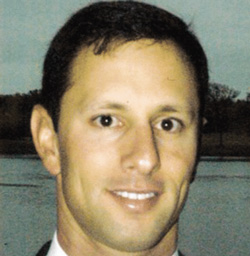| Getting Inside the Mind of a Champion |
| By: Aaron Weintraub - Mental Training Expert
Originally Published in: Fastpitch Delivery Provided by: NFCA In addition to earning excellent grades, she helped her team, the Oklahoma Sooners, win a national championship. In two games in the best-of-three NCAA Women's College World Series championship series against No. 1-ranked Florida, she hit two home runs, had an outfield assist and pitched a scoreless inning of relief. The rest of the year, all she did was earn Big-12 Freshman of the Year, All-Conference, and Big-12 All-Tournament First Team honors. Goodness. In this interview, I sought to understand how that could all happen for someone who less than three months ago was batting under the Mendoza line and struggling to get playing time: WEINTRAUB: After you committed to Oklahoma, what did you dream of and how did you try to prepare yourself? MENDES: I dreamed of coming in and winning a national championship. This is literally a dream come true. To prepare, I figured that the players here had a head start. They'd been here and been through the program. They knew what Coach (Patty Gasso) was like and had a handle on school. I wanted to be as prepared as possible. Fitness-wise, I made sure I was ready. I worked with a personal trainer a lot. I did a lot of hitting and pitching on my own, and tried to prepare as best I could. Academically, I knew that it was going to be tough juggling softball and school, so I needed to have a good handle on it and create good habits and time management skills. WEINTRAUB: Many girls want to do well, but very few are able to execute at the level you did this year. How did your coaches at home in Houston and your Oklahoma coaches help guide your training before you arrived? MENDES: Coach Gasso recruits people who are motivated to be better, so that handles that. My travel coaches taught me different perspectives and helped me learn how to play the game, how to get ready. My pitching coach was (former Texas A&M star and ESPN analyst) Amanda Scarborough. She gave me so much insight about what you need to be thinking to perform at that elite level. When she started doing more ESPN stuff, I took lessons from my travel ball coach, Tammie Davis, as well as another coach at Galveston College. They were both really instrumental in creating the pitcher that I am today. WEINTRAUB: Many athletes, when they move from one coach to another or when they get to college, might struggle to coordinate what they already know and are good at with the new information they are getting. It sounds like you've been able to assimilate information and find a way to be comfortable and continue to improve. Is that accurate, and if so, how did you do it? MENDES: I would say it's definitely a learning process. No matter how much I prepared, there was still some learning curves. It was a hard adjustment and I had to grow as a person and I had to learn more about myself. I had to trust in my abilities and become more confident before I was able to play as well as I did in the spring. I didn't even start for the team much until early March for those reasons. Something that helped me make that transition was letting go of the fear and the doubt and insecurities of if I'm not good enough. I want to be relaxed, not pressing. Once I let go of all that, it really helped me. WEINTRAUB: How did you do it? MENDES: With the help of a lot of teammates. Our team captain, Kelsey Arnold, was really helpful in that area. She told me that we're a team and we're sisters on and off the field. These relationships don't go away after college. The team gives us a safe area in that we can trust each other. I needed to learn how to trust my teammates. WEINTRAUB: Was there a dark day when your doubts were strongest? MENDES: The beginning of spring was pretty brutal for me. I was struggling. I wasn't consistent. I would do great, then plummet. It was a roller-coaster ride. It wasn't a specific moment, but I wasn't comfortable and I wasn't in my element and playing like I should be. WEINTRAUB: As you were letting go of your fears and fighting for playing time, can you share some of your self-talk that helped you perform well? MENDES: I went with the approach of, "I got recruited here for a reason. If my coach and team didn't have confidence in me, I wouldn't be here." I had to trust that my stuff, my talent, my athleticism, my knowledge of the game was enough. I had to set aside some time to really think about who I was and what I wanted to accomplish. I set some goals. Honestly, I had to get right with God a little bit. I had to make sure that this wasn't for my own benefit, not for my selfish wants and needs. The glory would go to Him because He is the one who gave me the talent in the first place. WEINTRAUB: Let's go to the postseason now. You all were defending national champions, but in your first regional game, you lost to a significant underdog. Can you talk about that game and your team's response? MENDES: I think we were looking too far ahead of ourselves. I will give credit. That pitcher was very good. She had a will to win and that team was blue collar. They came out like they had nothing to lose. They shook us out of our laziness, making sure that we stayed in the moment. We looked at each other after the game and we promised each other that we were not going to go home in this regional. No way. We were going to fight and that's what we did. WEINTRAUB: Did that come from the players or the coaching staff? MENDES: It was more of a team decision and we all came to that conclusion and we all agreed. Something needed to change. We had to step up our game and stay focused. We were all on the same page and ready to go. WEINTRAUB: I'm going to jump to the World Series. There were times, because you were facing very good pitching, that you did not look very good in your at-bat. Would you agree with that? MENDES: (laughing) Yes. WEINTRAUB: How were you able to struggle, but then come back and do something to really help your team? MENDES: It was just going up there with the same mindset that I had all season. I had to make sure that the moment wasn't getting too big; I tried to go after what I thought was my pitch. Sometimes I would chase a little bit and I'd let the moment get ahead of me, but resetting after each at-bat was really important. Whatever happened that last at-bat, whether it was a strikeout or a home run, it didn't matter, because this was a new at-bat. WEINTRAUB: Excellent. So not only do you not carry the bad at-bats with you, but you also let go of the good ones. How do you start fresh each time? MENDES: Our hitting coach, JT (Gasso), helps us train this during the game and during practices. Whenever we struggle a little, he makes us take a step back and take a deep breath, then step back in. It's a tool to help us refocus and get a hold of our emotions. WEINTRAUB: All coaches want athletes who can stay in the moment and play with relaxed intensity. Does a team culture which includes other athletes with some excellent toughness skills, help you? MENDES: It makes you want to be better. I see that stuff in my teammates and it makes me want to elevate my game. I know that if they are battling and struggling, I have their back. I want to be able to pick them up. At the same time, whenever I'm struggling, I know that they have my back. And they did. It really makes me want to be better. WEINTRAUB: You have some high-profile pitchers on your staff. Many people were probably surprised when they saw you pitching in the final championship game. Can you talk about any pressure you felt in that situation? MENDES: I mean, Paige Parker and Paige Lowary are both phenomenal pitchers and Coach (Melyssa) Lombardi is one of the best pitching coaches anywhere. It was honestly up to her and Coach (Gasso). As a staff, we agreed that no matter what happens, we're all going to do our best. I stay ready because I play in right field and Mariah (Lopez) warms up during the games. We all just stay ready. She felt like it was time for a change, so she put in Mariah and then she put in me and she ended with Paige Lowary. I think it all worked together really well. As for pressure, I didn't really feel pressure to get the outs. It was just kind of a new experience playing in front of that many people. Once I threw my first strike, I felt settled in. The people faded away and I kind of locked into the glove. WEINTRAUB: Game 1 was a 17-inning instant classic. Were you aware during the game of how special it was? MENDES: We all knew that once you get to 17 innings, something has got to give, but you knew that both teams gave a great fight. That speaks to the talent on both teams. As the hours dragged on, I don't think we were thinking about it being a special game. We were thinking one pitch at a time, "Let's get this one run across and hold them." We weren't thinking of the significance of 17 innings, but afterward, it kind of hit us. WEINTRAUB: In the sixth inning, you hit a huge home run. Can you tell us about that at-bat? MENDES: Whenever I went up to bat, I knew that she was pitching rise balls and that before I had been struggling against her. I really wanted to make sure that I went after my pitch and I wasn't chasing her junk balls. Whenever I hit, I like to keep things simple. I maybe focus on one thing. Maybe take a deep breath and load my hands back. I'll just pick one thing and the simpler it is, the easier it is for me to hit. I really just tried to clear my mind and see the ball all the way to the bat. And it worked. WEINTRAUB: It appeared that you had moved up in the box and that the pitch was above the strike zone when you made contact. Is that something that you practice? MENDES: Yes, we practice hitting the high pitch all the time and we hit off of Paige (Lowary) in practice and she has a phenomenal rise ball, so we knew how to hit a rise ball and the adjustments that we need to make. WEINTRAUB: What about the feeling as you saw the ball go over the fence? MENDES: It felt unreal. WEINTRAUB: Congratulations again. It was fun to watch you and your teammates compete. Softball is exciting and more and more people are noticing that. When people like yourself bring your talents to the fans, it makes the experience better for all of us. We look forward to watching you for three more years at Oklahoma.
His website, www.smilenowcoach.com, is dedicated to inspiring you to inspire others with short articles and videos. His Smile Coach Blog provides a free resource for coaches to stay motivated, get and share ideas about teaching mental toughness and leadership skills. His newest website, www.SoftballMentalMaster.com, offers a Softball Champion's Complete Mental Game Plan, which includes the Parenting in Athletics CD. Weintraub holds a bachelor's of arts degree from Emory University and a master's of education degree from the University of Virginia. Before becoming a full-time mental skills coach, Weintraub served as an assistant baseball coach for 13 years at Emory, the University of Virginia, Presbyterian College, Brevard College and Cedar Valley College. He is married with four children and lives in The Colony, Texas. |







